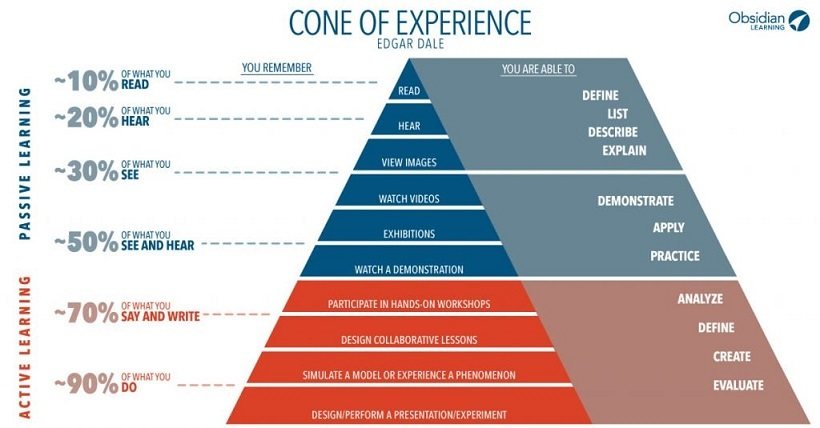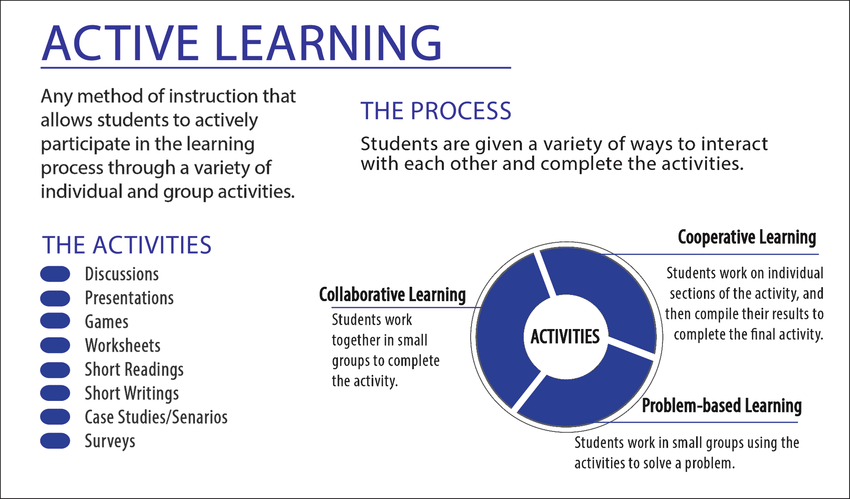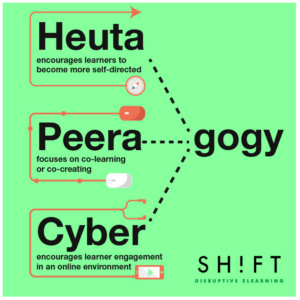Today, Prof Dr Zaidatun Tasir from Sekolah Pendidikan, Fakulti Sains Sosial dan Kemanusiaan gives talk about LnT NALI and AKRI. NALI is New Academia Learning Innovation. You can revised NALI here. AKRI is Anugerah Kecemerlangan Khas daripada Kementerian Pendidikan Malaysia. This year NALI 2019 conference had been held on September 2019. Please visit here http://ctl.utm.my/nali2019/about/

source: https://elearningindustry.com/cone-of-experience-what-really-is
Active Learning

source: https://www.researchgate.net/figure/Active-learning_fig1_281275352
Problem based learning – need cycle, problem formulation, weightage and assessment (triple jump). Indeed claim learning through problem or problem learning. Please visit https://www.capss.org/educational-transformation/what-are-student-centered-approaches
Students Centered Learning because four principles of
- Learning is personalized
- Students take ownership
- Learning can take time anytime and anywhere
- Competency based learning
Problem Based Learning for 21st Century Learning
- Step 1: Explore the issue.
Gather necessary information; learn new concepts, principles, and skills about the proposed topic. - Step 2: State what is known.
Individual students and groups list what they already know about the scenario and list what areas they are lacking information. - Step 3: Define the issues.
Frame the problem in a context of what is already known and information the students expect to learn. - Step 4: Research the knowledge.
Find resources and information that will help create a compelling argument - Step 5: Investigate solutions.
List possible actions and solutions to the problem, formulate and test potential hypotheses - Step 6: Present and support the chosen solution.
Clearly state and support your conclusion with relevant information and evidence. - Step 7: Review your performance.
Often forgotten, this is a crucial step in improving your problem-solving skills. Students must evaluate their performance and plan improvements for the next problem.
Learning Evolution
- Theory of Inquiry (Dewey 1938) to community of Learning
- Learning in the community – web pages, LMS, FB Groups
- Learning with the Crowd – is now 21st century learning evolution
Now learning is social network relation, interact with societies,
Crowd learning activities
New Learning theories
- Location based theory
- Space Based theory
- Constructivism theory toward connectivism in digital age (learning is a process of connecting nodes or information sources).

- https://www.educatorstechnology.com/2014/12/these-are-4-concepts-shaping-21st.html


Does your blog have a contact page? I’m having problems locating it but, I’d like to send you an e-mail. I’ve got some creative ideas for your blog you might be interested in hearing. Either way, great site and I look forward to seeing it develop over time.